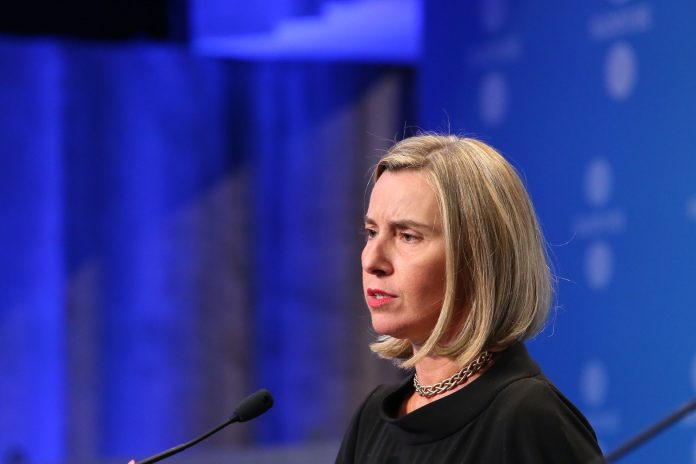The European Council on June 25 adopted a decision establishing a common set of governance rules for 17 projects related to a Permanent Structured Cooperation on security and defence (PESCO), as outlined in the Treaty of the EU.
One of the aims of PESCO is for EU member states to increase their effectiveness in addressing security challenges and advancing towards further integrating and strengthening defence cooperation within the EU framework.
The goal is to jointly develop defence capabilities and make them available for EU military operations.
“We had an excellent joint session of defence and foreign ministers of EU member states today,” said the EU’s High Representative/Vice-President Federica Mogherini at the Foreign Affairs Council on June 25.
“First of all, we took important decisions to advance our EU defence work in preparation for the European Council,” she added. “We adopted the rules for the governance of the Permanent Structured Cooperation (PESCO) projects. Now the focus will be fully on the implementation of the 17 projects already existing, the preparation of the new set of projects to be adopted by November and the work we will start to prepare the conditions for third countries’ participation in PESCO projects.”
According to Mogherini, EU members also decided to move forward with the strengthening of the bloc’s work on the civilian work on security and defence.
“The member states welcomed my proposals to counter hybrid threats,” she said. “So, I will bring this entire package to the European Council on Thursday in Brussels.
“Member states also welcomed the proposal I made on our financial instruments to support our defence and security work,” she added. “There is a European Peace Facility idea on the table. We will now move on with the member states to look at the details of this proposal.”
In a separate report, The Guardian noted that the UK is backing a decision by nine EU member states to establish a European military force for rapid deployment in times of crisis.
Ministers from France, Germany, Belgium, Britain, Denmark, the Netherlands, Estonia, Spain and Portugal signed a letter of intent in Luxembourg on June 25.
However, Nato’s secretary general, Jens Stoltenberg, who was in Luxembourg for discussions on European security and defence before a summit of the military alliance in Brussels next month, told reporters: “I welcome this initiative as I believe it can strengthen the readiness of forces. We need high readiness that is exactly what Nato is now focusing on.
“I just see this new initiative as something that can complement and actually reinforce the work which is ongoing in Nato to strengthen and increase the readiness of our forces.”
In an interview with the French newspaper Le Figaro on June 24, France’s defence minister, Florence Parly, said “Defence Europe requires a common strategic culture… The deadlines and decisions in the EU are still much too long compared to the urgency that can arise from a critical situation in a country where Europeans would consider that there is a strong stake for their security.”
Since the European Intervention Initiative is outside the EU’s structures, it will allow for full UK involvement after Brexit, reported The Guardian.

